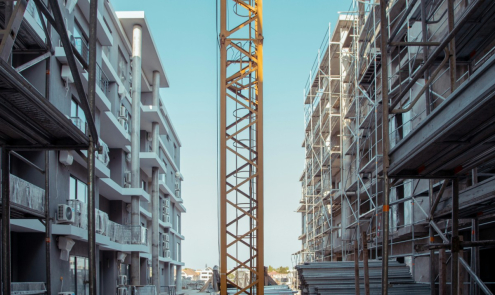IS THE TRANSITION TO HEAT PUMPS WORTH THE COST?
07 May 2024
As we contend with the global need to reduce carbon emissions and combat climate change, the UK government is introducing bold initiatives to transition away from fossil fuels. One such initiative is the ban on new gas boilers, set to take effect in 2035 in the UK. While this more is commendable for its environmental ambitions, it brings a critical issue into question: the high capital costs and potential risk of debt for households in their transition to heat pumps.
As we contend with the global need to reduce carbon emissions and combat climate change, the UK government is introducing bold initiatives to transition away from fossil fuels. One such initiative is the ban on new gas boilers, set to take effect in 2035 in the UK. While this move is commendable for its environmental ambitions, it brings a critical issue into question: the high capital costs and potential risk of debt for households in their transition to heat pumps.
The UK government's plan to phase out new gas boilers by 2035 is a crucial step in reducing greenhouse gas emissions. Heat pumps, which are considered a greener alternative to gas boilers, are being positioned as the go-to solution. However, this transition is being questioned by critics due to the financial burden it places on homeowners.
A recent report by the Department for Energy Security and Net Zero anticipates that many households will need to take out loans to fund the installation of heat pumps. This raises a significant concern of the risk of debt accumulation for homeowners, especially those who are already financially challenged.
Financing arrangements, subsidies and the question of affordability
To mitigate the debt risks, the government is exploring financing arrangements and subsidies. The hope is that these financial incentives will encourage more homeowners to embrace heat pump technology. The report from the Department for Energy Security and Net Zero acknowledges the importance of making heat pumps an affordable and practical option for consumers. However, it's important to note that the implementation of such measures is still a work in progress.
A key aspect of the debate centres on affordability. Critics argue that the cost of purchasing and installing heat pumps, which can reach up to £15,000, may be unrealistic for many households. Concerns have also been raised about the transition potentially pushing vulnerable households further into debt, which would prove far from ideal.
Additionally, the transition to heat pumps also carries implications for businesses. While it's true that the move toward greener technologies can provide economical benefits for some businesses, costs remain a key consideration.
Government response and industry challenges
The government has responded to these concerns by increasing grants for homeowners who choose to replace their gas boilers with heat pumps. While this financial support is a step in the right direction, there are still concerns about the availability of skilled professionals and the readiness of the construction industry to meet the demand for heat pump installations. The huge disparity between the number of installers and the installations required raises doubts about the viability of heat pump adoption across the UK.
The transition away from gas boilers toward more sustainable alternatives, such as heat pumps, holds significant promise for the environment. However, with concerns about capital costs, the risk of debt for homeowners and the skills gap in the construction industry, we’re left to ask: is the complete replacement of gas and boilers feasible?
The discourse surrounding heat pumps and the transition away from gas boilers is gaining momentum, and while it's significant to acknowledge the progress made so far, the financial burden on homeowners and the readiness of the construction industry to implement heat pumps pose significant challenges.
As we navigate this transition to a more sustainable sector, open and honest dialogue within the construction industry and the wider community is vital. Through collaboration and shared ideas, we can find solutions that benefit both industry professionals and the planet. Ultimately, the transition to heat pumps must be as equitable and sustainable as possible to ensure a greener future for all.









